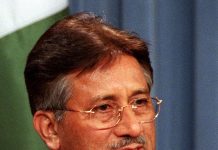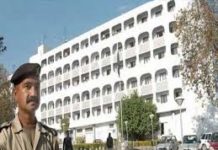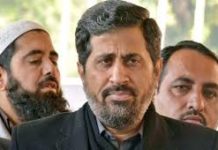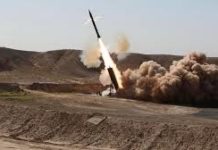By Muhammad Luqman
The Economic Coordination Committee (ECC) of Pakistan’s federal cabinet has approved a 10 per cent increase in the power rates for consumers using more than 300 units.
The decision was taken at a committee meeting headed by Finance Minister Asad Umar.
Commenting on the government’s decision to hike the power tariff, Umar said that the decision was inevitable due to the growing circular debt and economic challenges facing the country. According to media reports.
“However, the government has decided to decrease the power tariff for the agricultural sector ” he said.
During the last meeting on October 22, ECC members had deferred the decision on an increase in the power tariff and decided to meet on Oct 24 to consider it.
According to earlier reports, the government wanted to increase the power tariff in two phases.
“The Ministry of Power has sought permission from National Electric Power Regulatory Authority (NEPRA) regarding increasing the power tariff by Rs3.74/unit in two phases, however, the government is facing difficulty in increasing the price after NEPRA’s new tariff,” a media report said quoting ministry officials.
“NEPRA has upheld that the phase-wise rise will further increase the government’s economic problems,” it had added.
Earlier this month, an International Monetary Fund (IMF) team which visited Pakistan called for a further hike in gas and power tariffs.
An IMF team led by Harald Finger visited Islamabad from September 27 to October 4 to discuss Pakistan’s economic situation and exchange views on necessary policies for economic stabilisation and sustainable and inclusive growth.
At the end of the visit, Finger “welcomed the policy measures implemented since last December” which include 18 per cent cumulative depreciation of the rupee, interest rate increases of cumulatively 275 bps, fiscal consolidation through the budget supplement proposed by the minister of finance, a large increase in gas tariffs closer to cost recovery levels, and the proposed increase in electricity tariffs.
The increase in power rates also comes a day after the Saudi government stepped forward with a $6 billion bailout package for Pakistan’s ailing economy.
The package includes $3bn balance of payments support and another $3bn in deferred payments on oil imports.
Agreements in this regard were signed on the sidelines of the second edition of the annual Future Investment Initiative (FII) Conference in Riyadh. It showcases economic and investment opportunities in Saudi Arabia as it pursues Vision 2030 for diversifying its economy. The Pakistani delegation was led by Prime Minister Imran Khan.
This was the prime minister’s second visit to Saudi Arabia in five weeks. The primary objective of both trips was to seek financial assistance to deal with impending balance of payments crisis.
The Saudi package may provide breathing space to the government for dealing with economic challenges, but would not be enough to avoid the IMF facility. It is believed that improved foreign exchange reserves would strengthen Pakistan’s negotiating position in talks with the Fund.
The situation could further improve if China also makes some commitments to rescue its ‘all-weather friend’. PM Khan is scheduled to travel to China on November 3.













